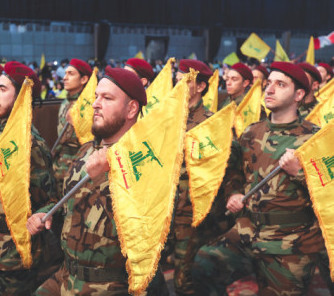The recent events in Afghanistan, the pandemic, climate agenda actualization and many unresolved problems of maintaining strategic stability make us recall the initiative by Russian President Vladimir Putin, which he articulated on January 23, 2020. Back then, speaking as at the Israeli Yad Vashem memorial complex to commemorate the 75th anniversary of the Auschwitz death camp liberation, he made an important suggestion that the permanent UN Security Council members (Russia, China, the United States, Great Britain and France) unite and do everything to protect and defend peace. In his speech, Putin noted that "a summit meeting by the countries that made the chief contribution to the defeat of the aggressor and creation of the post-war world system would play an enormous role in the search for collective answers to the modern challenges."
This proposal by the Russian leader immediately came under strong criticism from the West. Given the current situation, this may prove dangerous and subsequently irresponsible, because, according to a number of leading nuclear scientists, the fate of humanity is currently jeopardized, while the threat itself is manmade. Not so long ago, the peer reviewed American journal Bulletin of the Atomic Scientists (BAS) wrote that the so-called Doomsday Clock was 100 seconds to midnight. "It is the closest to Doomsday we have ever been in the history of the Doomsday Clock."
According to BAS magazine scientists, the risk for mankind to be destroyed in a nuclear war or following a climate change has never been closer than at any point since the Doomsday Clock's creation in 1947. It is not by chance that the outlet's president Rachel Bronson claims that "we now face a true emergency – an absolutely unacceptable state of world affairs." Nuclear scientists note that the world is currently facing many threats and challenges. They place particular emphasis upon climate change, discord between nuclear powers, events involving the nuclear deal with Iran and mutual problems in the course of nuclear disarmament negotiations.
In this regard, it is instructive to recall the words by former UN Secretary General Wu Tang, uttered by him in 1969 and coming into sharp focus today: "Considering the information I received... I believe that members [of the UN Security Council] have about a decade to... start global cooperation and put an end to the arms race to improve the human environment... and give the necessary impetus to development. If this global cooperation goes sour within the next ten years, I am afraid that the problems will reach a scale beyond the human ability to cope with them."
Over 50 years have passed, but Wu Tang's warning has unfortunately remained unheard, primarily in the West. Due to the five wasted decades after the former UN Secretary General called for global cooperation to keep future threats under control, President Putin's proposals to hold a summit of the five countries are an opportunity for human survival, pure and simple. These countries have no right to miss it. Discussions on the control over nuclear weapons and means of their delivery might well take place as part of the summit involving UN Security Council's permanent member states. Such a discussion would not be superfluous given the US withdrawal from the Intermediate Nuclear Forces Treaty (INF) in 2020.
The only positive thing about the situation is that February this year saw Washington extend another important document for five years, i.e. the Strategic Arms Reduction Treaty (START-3), which limits Russian and American nuclear arsenals. To date, this treaty is the only document to somehow restrain the global nuclear arms race. It is therefore noteworthy that BAS journal president Rachel Bronson announced the decision not to set the symbolic Doomsday Clock's minute hand forward.
Commenting upon the ongoing Russian-American strategic security dialogue, Russian Deputy Foreign Minister Sergei Ryabkov recently noted that nuclear scientists did not digress from the truth with the Doomsday Clock, stressing that the extension of START-3 is not enough to reason about promoting global security, though. This requires systematic work, Moscow believes.
Indeed, the matter should not be limited to START-3 alone, and a summit of the five states might consider other proposals to limit the arms race either. However, it is fair to say that another handicap here is the emergence of new destabilizing factors, like the development of hypersonic weapons, dual-use missiles, and the intertwining of conventional and nuclear weapons. At some point, these phenomena will also require mainstreaming into the format of certain agreements.
In this regard, it is not by chance that some experts call President Putin's proposal a "breakthrough innovative initiative", which has already been backed by China and France. Such a forum, if at all, is believed to contribute to stabilizing the situation worldwide. After all, these five leading countries influence most of global politics and virtually manage all the global processes. If they adopted some kind of decision, it would certainly find application in practice.
Of course, the COVID-19 pandemic has recalibrated global affairs and made us forget about Vladimir Putin's initiative for some time. However, the troubling events in Afghanistan, as well as persistent tensions in Syria, Libya, Iraq and some other "hot spots" have clearly shown that President Putin's proposal not only remains relevant, but has become all the more desirable.
Admittedly, US President Joe Biden has also come up with an important initiative. The United States is planning to hold a global summit for democracy. Of course, democracy is never too much, but the very idea of such a summit is somewhat confrontational: democracies should unite against authoritarian states. An ideological split is the last thing the present-day world needs...









